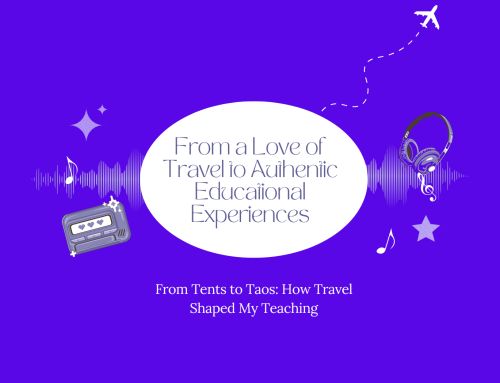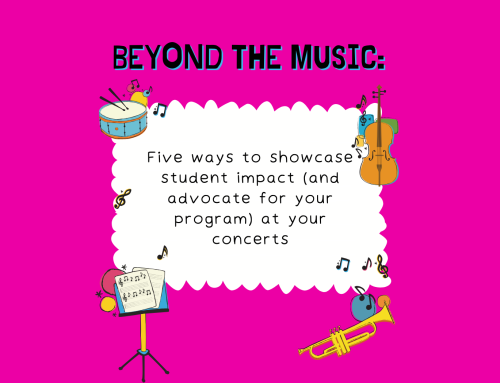For the next installment of our Music Beyond the Classroom series, we caught up with Bend Gundersheimer, affectionately known as “Mister G” to all his fans. Ben is a true entrepreneur and manages his performing career with a successful writing career while he continues to tour and record. His website sums up all of his roles in the music industry as a”Latin GRAMMY Award winning artist, author, activist, and educator. With 10 albums of original songs composed in four languages, Ben tours internationally as a solo artist and with his Global Citizen Ensemble. His spirited bilingual performances aim to dissolve borders and foster cross cultural connections. ” Check out his website for more information on Ben and his touring schedule.
Table of Contents
Tell us about what you do. What does your day-to-day work look like?
My name is Ben Gundersheimer, but I’m known onstage as “MISTER G.” Over the last decade, I’ve released 10 albums of original music incorporating a wide range of musical styles (funk, folk, bluegrass, bossa nova, rock, reggae, salsa, merengue) and languages (English, Spanish, Hebrew, Yiddish).
I tour internationally, so a lot of my days are spent on stages, but also in airports and hotels. When I’m not on the road, I write and record in my studio on a dead end road in the woods of Western, Massachusetts. These days, I have a couple of employees, so a lot of my time is devoted to running our business and managing our small team.
How did you get into your position? What led you there?
Prior to becoming a musician focusing on writing and performing for children and families, I had a parallel career as an artist performing for adults. Ten years ago, I went back to school and received a Masters in Elementary Education with the intention of becoming a classroom teacher. Ultimately, I decided to combine my background as a musician with my interest in working with children. The process of becoming a touring family musician and author (I’ve published several book with Penguin Random House), has been full of unexpected developments that I never could have envisioned. It’s been a gradual process from playing birthday parties and coffee shops, to winning a Grammy Award and performing at Lollapalooza and Austin City Limits.
Who were the biggest mentors in your field?
I started playing guitar and writing songs when I was nine years old. A few years later, I had a summer job mowing lawns. One of the people who I worked for had a son, Danny Kortchmar, who happened to be one of my musical heroes. Danny was a guitar player and producer for artists such as James Taylor, Neil Young, Don Henley, Billy Joel and Jackson Browne. I played Danny some of my early songs and he was incredibly supportive. We’ve stayed in touch over the years, but it was his early encouragement that helped me believe that I too could one day create a life in music as a musician and producer.
What is the hardest part of your job?
Having to juggle being an artist with running our business is my biggest challenge. Like most musicians, my love of the art is what drew me to the profession, but I didn’t understand how much of the job is dependent upon having business skills. It’s difficult to be a freelance artist, with all the inherent insecurity that comes with an unpredictable job.
What is the best part of your job?
Performing for kids and families around the world is a wonderful experience and a great privilege. The hugs I get after shows, and the photos and videos fans send me make all the challenging aspects of my job worthwhile. I also love writing songs and recording in my studio. The solitary, creative aspect of my work at home is the flip side to the very social, public touring life on the road.
Did you have any influential music teachers in your life? Tell us about them.
I’m forever grateful to my first guitar teacher, Bill Albert. Learning those first chords unleashed a world of possibility for me as a musician, but more importantly, as a songwriter. Bill also taught me lots of great songs, which helped me develop a repertoire that enabled me to start performing as a teenager.
What do you wish you had in school that would have better prepared you for what you’re doing now?
Nothing I learned in school prepared me for the actual business side of the music business. Being facile with basic economics, time management and technology…it’s been a steep learning curve for me. All aspiring artists need to learn these other skills that have nothing to do with the creative process if they want to have a sustained career. No one told me that in school!
What advice would you give to someone trying to “make it” in your field?
I would tell someone to do their best to define what “making it” means to them. For example, in the family music business there are lots of opportunities to perform at schools and libraries as a local/regional artist. Provided someone can engage an audience and has the dedication to the work, that is an attainable goal. It’s much more difficult and competitive to get gigs at performing arts centers, festivals and theaters internationally. Anyone who aspires to that career will need another level of skill and commitment.




Leave A Comment